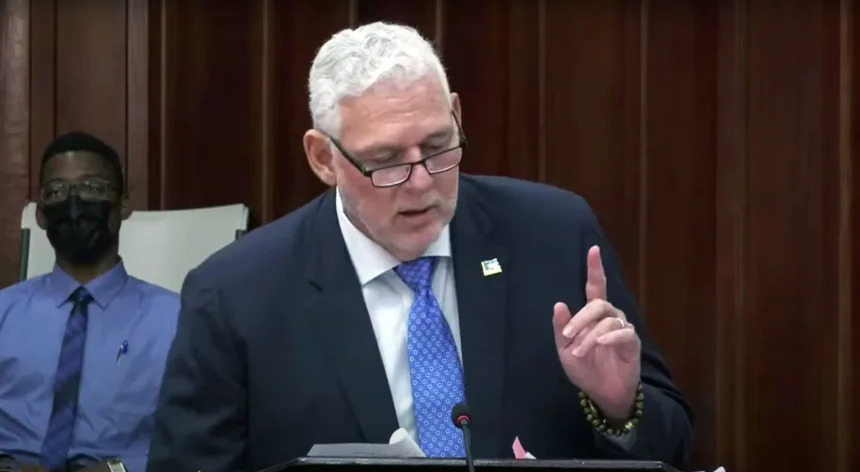At a press conference held by St Vincent’s National Democratic Party on Wednesday, St Lucia’s opposition leader Allen Chastanet voiced serious concerns about the integrity of Citizenship by Investment (CBI) and Citizenship Investment Programmes (CIP) operating in the Caribbean region.
Chastanet stated that these programmes have been exploited by “bad actors,” plagued by corruption, and have failed to adhere to essential governance frameworks. He further criticized the regional governments for insufficient action in addressing these issues.
The discussion unfolded amid growing scrutiny from the United States, which has proposed a travel ban affecting 36 countries, including four Caribbean nations that run CBI programmes. Notably, Chastanet’s counterpart from St Vincent, opposition leader Godwin Friday, offered a contrasting view. While acknowledging the US’s sovereign right to protect its borders, Friday expressed skepticism that the CBI programmes are the primary impetus behind the proposed travel restrictions.
Chastanet, however, strongly disagreed, asserting that the travel ban proposal is significantly linked to the CBI programmes, especially concerning the four Eastern Caribbean countries named. “In a large part, it has to do with the lack of regulations and bad actors,” he stated.
He elaborated on the US’s two major concerns: money laundering and security risks associated with high-profile criminals obtaining secondary passports through these programmes. “Evidence has surfaced showing that some applicants underpay the statutory fees, compromising the financial integrity of the programmes and triggering anti-money laundering (AML) issues as these funds move through correspondent banks in the US. Countries like St Kitts, Dominica, and Grenada have been implicated”.
Moreover, Chastanet referenced recent arrests in the UK, Europe, and the US of criminals holding secondary citizenship from OECD countries, with Dominica and Saint Kitts frequently involved. He noted that the US had hoped the Memorandum of Agreement (MOA) signed among CBI countries would harmonize regulations and curb malpractice. Instead, a “race to the bottom” has persisted, with countries competing aggressively for sales, often by cutting corners.
Chastanet highlighted consequences already faced by some nations, including Dominica’s loss of visa-free access to the UK. He underscored that while the US has indicated options beyond the travel ban, the small populations of these Caribbean countries might limit their leverage. The US’s approach, he suggested, often involves quid pro quo negotiations, which the current administration actively pursues.
Looking ahead, Chastanet pledged that if his party is re-elected in St Lucia, they intend to unify the CIP programme under a single regional framework to end harmful competition. Should other Caribbean CBI countries resist harmonization, St Lucia would consider significant reforms, including shifting to a residency-based citizenship model requiring applicants to reside in the country before citizenship is granted. Additionally, his party would contemplate amending the Basseterre Treaty to support these reforms.
Chastanet’s remarks underscore the growing pressure on Caribbean nations to tighten oversight of their citizenship programmes amid international concerns over security, financial transparency, and regulatory compliance.


